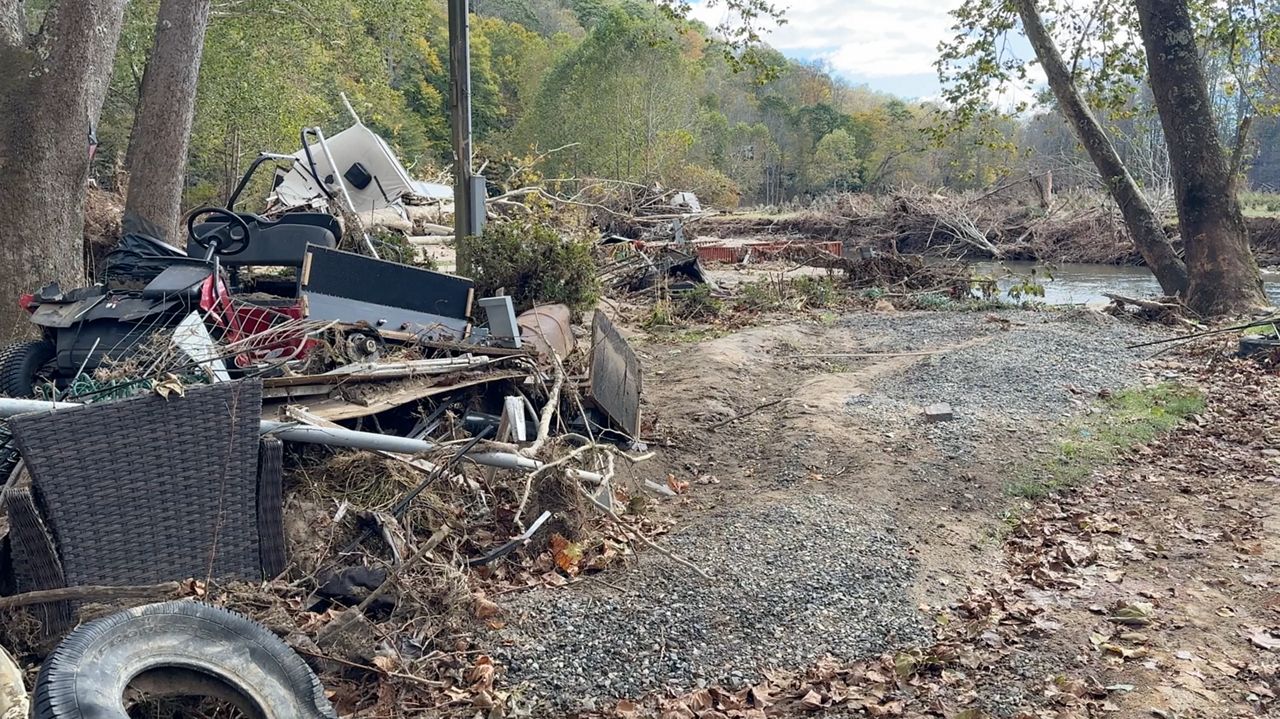SURF CITY, N.C. — Researchers are monitoring sea turtles that are washing up along the coast. Most recently, a sea turtle that washed up on the shore of Oak Island on Wednesday died at a turtle rehab center.
Kathy Zagzebski, executive director of the Karen Beasley Sea Turtle Rescue and Rehabilitation Center, says an extraordinarily high number of sea turtles washed up on North Carolina beaches in March and April.
“Previous high, over 25 years of doing this, was six turtles admitted in March and we had 12. And then our previous high in April was nine turtles admitted some year prior, and we had 22 turtles admitted in April,” Zagzebski said, comparing previous years' figures with this year's.
She was first introduced to cold-stunned sea turtles 16 years ago while at the National Marine Life Center in Massachusetts.
Zagzebski thinks the ailing reptiles found along the shore have been cold-stunned, causing debilitating turtle syndrome.
“Here in North Carolina this time of year, we suspect that these turtles were formerly cold, stunned, meaning suffering from severe hypothermia during the winter, because maybe they didn't make it as far south as they needed to,” Zagzebski said.
The signs of DTS include lethargy, emaciation and being covered with parasites or other organisms.
“Epibiota, other external parasites and things growing on them. So they have barnacles and algae and sometimes other ecto-parasites or external parasites,” Zagzebski said.
DTS leads to many other problems. The lethargic state and weakness can slow the turtles enough so they can't swim away from boats and wind up getting hit, causing injuries or possibly death.
One way rescuers treat these injuries is with honey, which Zagzebski says is antibiotic, antioxidant and anti-inflammatory.
“And it also, with its stickiness, if you will, it really helps to kind of stay on the wounds.... We used to have honey donated, natural raw honey. There also is a medical-grade honey, but we've been fortunate enough to have local beekeepers donate honey to us,” Zagzebski said.
A sea turtle that rescuers named Angel Hair didn’t make it through the night after it was found Wednesday on Oak Island, but Zagzebski’s team has helped many sea turtles return to their natural habitat.
Zagzebski says people can help protect sea turtles by just being aware on the water. She urges boaters to recognize no-wake zones and speed limit zones.
To learn more about the Karen Beasley Sea Turtle Rescue and Rehabilitation Center, click here.









